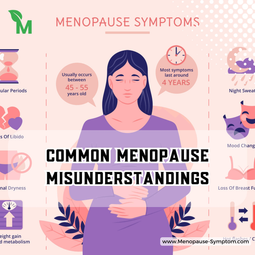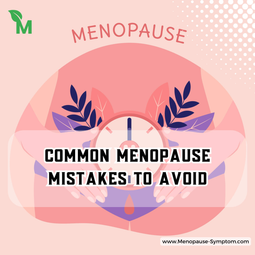Perimenopause, the transitional stage before menopause, can be a challenging time for many women. Along with physical symptoms like hot flashes and irregular periods, many women also experience a common yet frustrating symptom: brain fog. This mental fog can impact daily tasks and make it difficult to concentrate and remember information. But don't despair, there are solutions to combat this fog and keep your mind sharp and clear!
What is perimenopause brain fog and why does it happen?
So, what exactly is perimenopause brain fog? It is a feeling of cognitive fogginess, difficulty concentrating, and forgetfulness that many women experience as they approach menopause. This is due to the fluctuations and eventual decline in estrogen levels during perimenopause. Estrogen plays a crucial role in brain function, including memory and cognitive skills. As estrogen levels decrease, it can lead to changes in the brain's structure and function, resulting in brain fog. Hormonal imbalances during perimenopause can also contribute to other symptoms like mood swings and irritability, further affecting cognitive ability.
Understanding the hormonal changes behind brain fog
Exercise is often touted for its physical benefits, but did you know it can also be a powerful tool for managing perimenopause brain fog? Regular physical activity can help regulate hormones, improve blood flow to the brain, and release endorphins, the feel-good hormones that can boost mood and cognitive function. Studies have shown that exercise can also promote the growth of new brain cells and improve brain plasticity, helping to combat the cognitive changes during perimenopause.
The surprising benefit of exercise for perimenopause brain fog
It's important to remember that perimenopause brain fog is a natural part of the aging process and not something to be ashamed of. However, there are ways to embrace the fog and make it more manageable. Some tips include: keeping a daily routine and schedule, making lists and using reminders for important tasks, practicing mindfulness and relaxation techniques to reduce stress and improve focus, and getting enough sleep to support brain function. By making these small changes, you can learn to find peace and acceptance during this transitional phase of life.
Get a good night's sleep to combat perimenopause brain fog. Your brain needs rest to function at its best.
Embrace the fog: tips for finding peace and acceptance during perimenopause
In conclusion, perimenopause brain fog can be a frustrating and challenging symptom, but it doesn't have to control your life. By understanding the hormonal changes behind brain fog, incorporating exercise into your routine, and finding ways to embrace and manage the fog, you can keep your mind sharp and clear. Remember, perimenopause is just a temporary stage, and with these strategies, you can make it through with ease and grace.
Don't let perimenopause brain fog hold you back from living your best life. With the right approach and mindset, you can navigate through this transitional phase with ease and maintain a clear and sharp mind. Embrace the fog, take care of yourself, and know that this too shall pass.
Source: Team MPS compiled, analyzed and wrote. Please dont reup without source. Many thanks.




